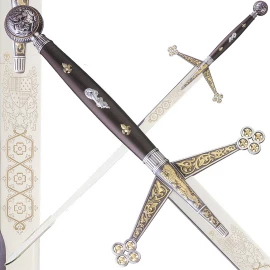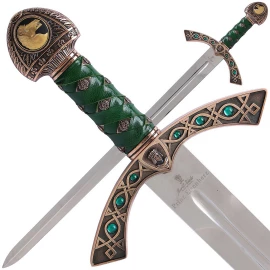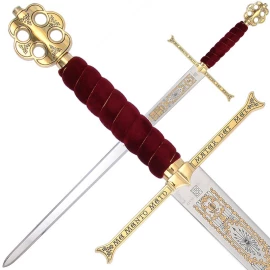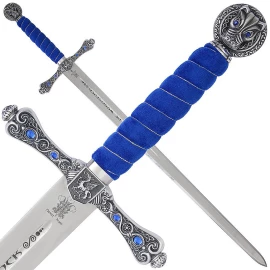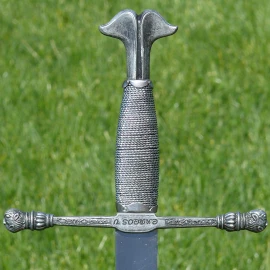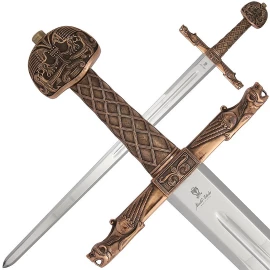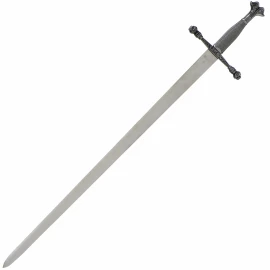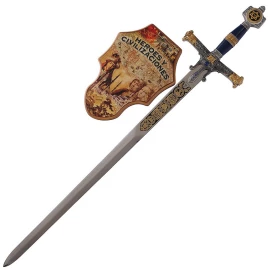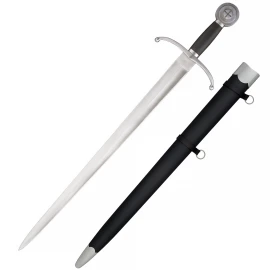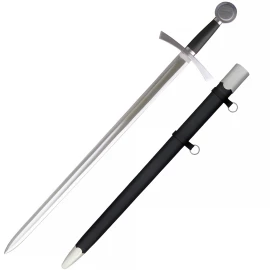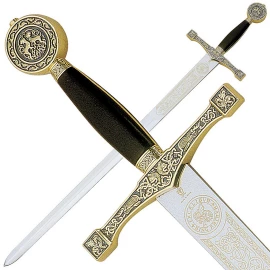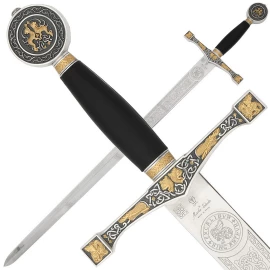Durendal - sword of the legendary Roland
Roland´s brave deeds were put down thanks to the Roncesvalles battle (August 15th, 778). The Charlemagne’s troops, coming back from the siege of Zaragoza, suffered in the Pyrenean pass of Roncesvalles an attack from the Vascue tribes from the moors. The narrowness of the pass and weight of their weapons favoured the success of this attack on the Carolingian rear-guard. In this tragic event Roland died, but his legend took him into the memory of literature (Chanson de Roland, Roland stat, Orlando Furioso, etc.) as the hero, who faced 100.000 Saracens with his magic sword “Durendal”, a personal present from his lord Charlemagne, and his horn “Oliphant”. Legends say that with a blow of Durendal, he opened a pass on the Pyrenees, known today as “Bréche de Roland”. More information...
Notify me when the item is in stock.
We will inform you as soon as we stock up.
Durendal - sword of the legendary Roland
Durendal or Durandal is the sword of Roland, legendary paladin of Charlemagne in French epic literature. It is also said to have belonged to young Charlemagne at one point, and, passing through Saracen hands, came to be owned by Roland.
- Overall length approx. 1169mm
- Blade length approx. 950mm
- Length of the guard approx. 212mm
- Blade width at the guard approx. 53mm
- Blade width 10cm off the blade point approx. 23mm
- Point of Balance approx. 18cm
- Blade thickness approx. 5mm
- Thickness of the blade edge approx. 0,6mm
- Weight approx. 2678 g
- Gold plated hilt, cast from Zamac (zinc alloy).
- Blade: AISI 440 Tempered Stainless Steel, etched
- Cross guard with lion heads
This is just an ornamental item, not suitable for combat or any other practical use!
High Quality Sword of the exclusive Collection "Historical, Fantastic and Legend Swords" made by MARTO.
Made in Toledo (Spain).
This is a fantasy sword, there is no original sword it is based on.
According to La Chanson de Roland (The Song of Roland), the sword was brought by an angel to Charlemagne in the vale of Moriane, and Charlemagne then gave it to Roland. In that poem, the sword is said to contain within its golden hilt a tooth of Saint Peter, blood of Basil of Caesarea, hair of Saint Denis, and a piece of the raiment of Mary, mother of Jesus, and to be the sharpest sword in all existence.
According to legend, at the Battle of Roncevaux Pass Roland took the rearguard to hold off Saracen troops long enough for Charlemagne's army to retreat into France. Roland slew a vast number of enemies: wielding Durendal, he sliced the right arm of the Saracen king Marsile, decapitated the king's son Jursaleu and put the one-hundred-thousand-strong army to flight. Roland later attempted to destroy the sword by hitting it against blocks of marble, to prevent it from being captured by the attacking Saracens, but Durendal proved to be indestructible. After being mortally wounded, Roland hid it beneath his body as he lay dying along with the oliphant, the horn used to alert Charlemagne before succumbing to his injury.
We are here for you


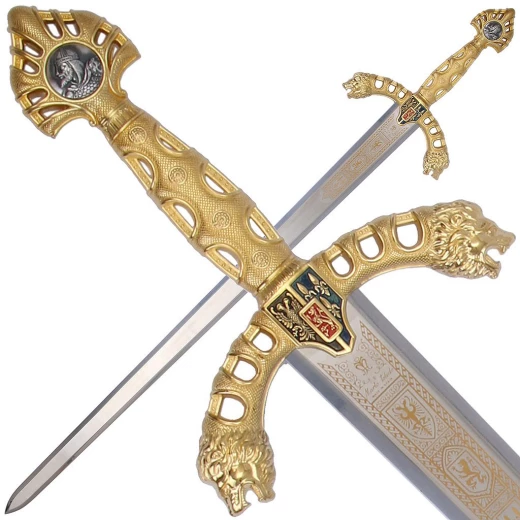






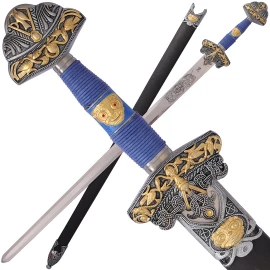
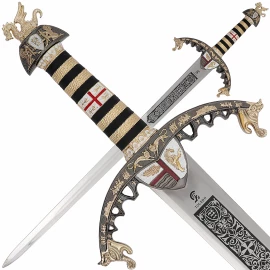
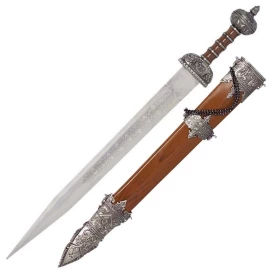
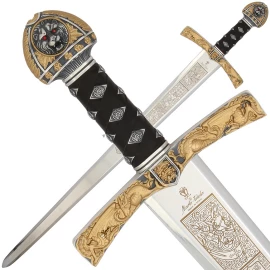
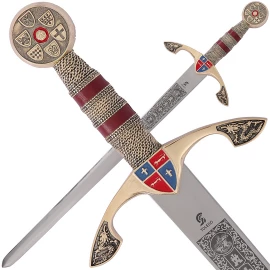
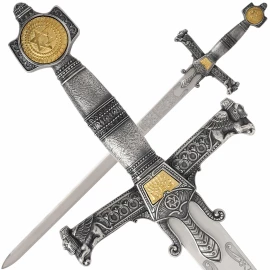
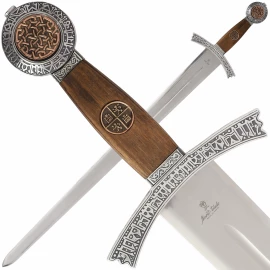
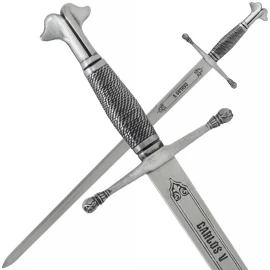
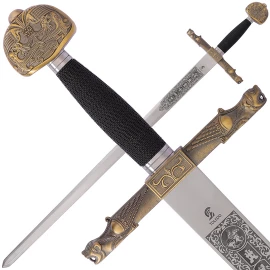
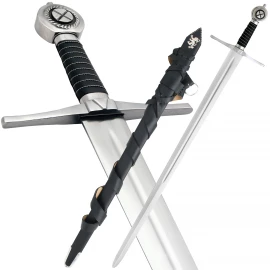
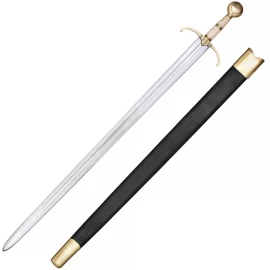
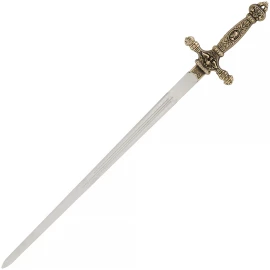
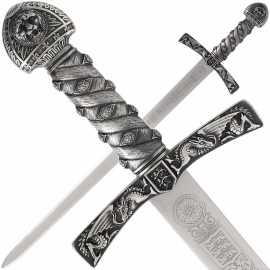
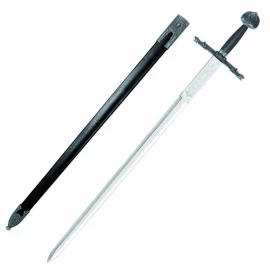
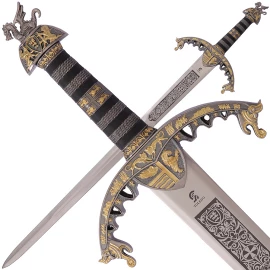
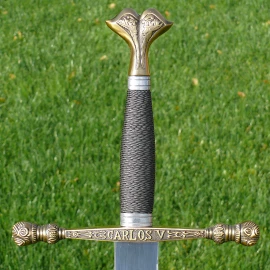
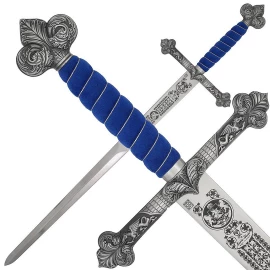
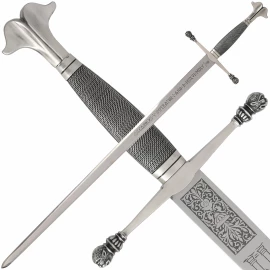
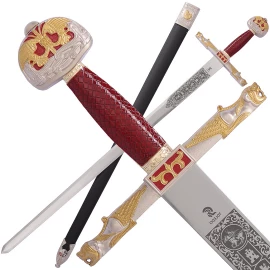
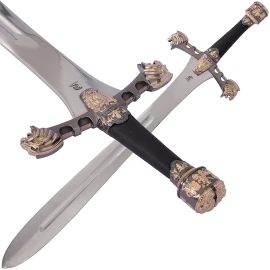
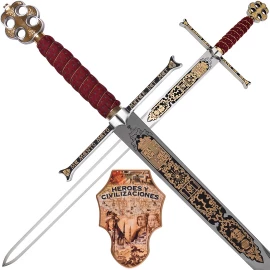
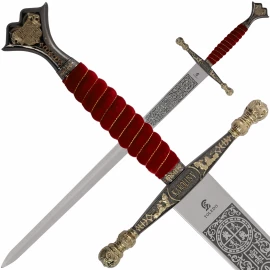
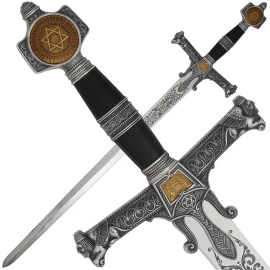
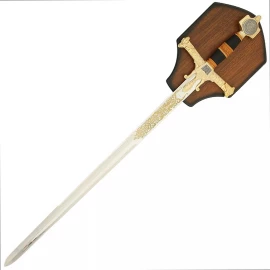
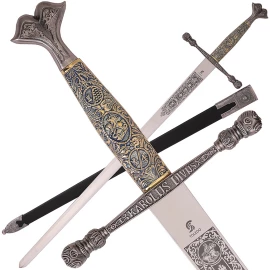
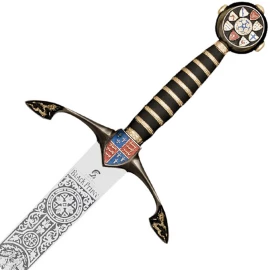
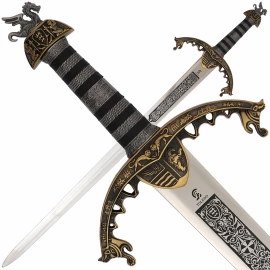
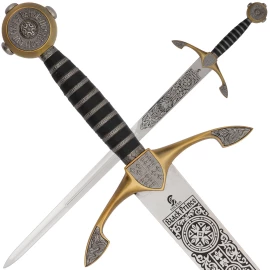
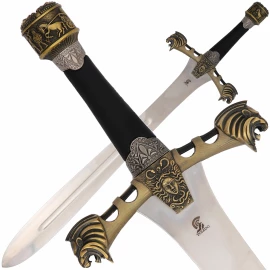

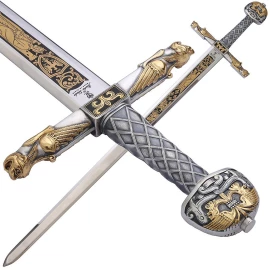
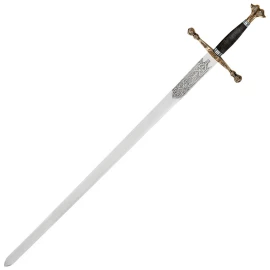
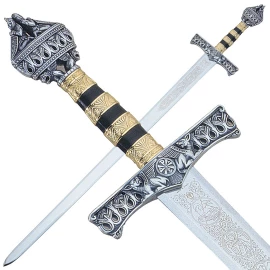
.2152382459.1706739458.JPG.webp)
